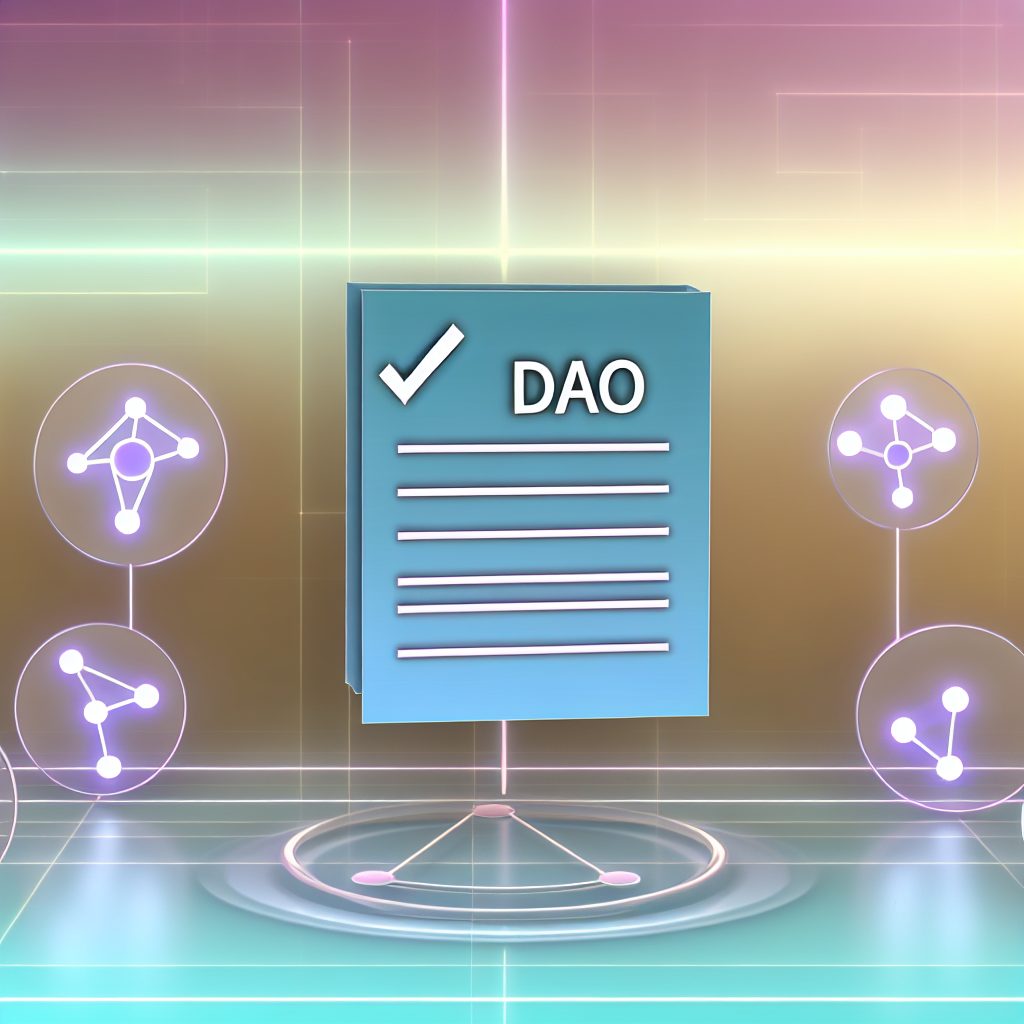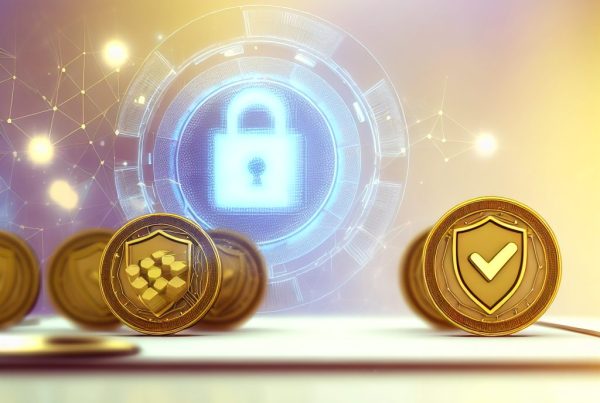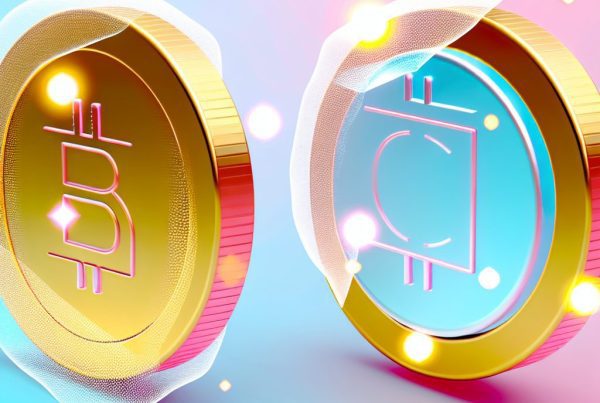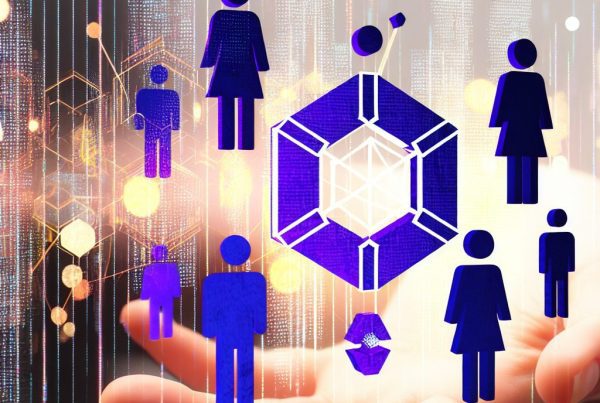What Are Governance Proposals in DAOs?
Decentralized Autonomous Organizations (DAOs) have emerged as a revolutionary concept in the cryptocurrency industry, enabling communities to govern themselves without centralized control. At the heart of these organizations lies the mechanism of governance proposals, which play a crucial role in decision-making processes. This article delves into the intricacies of governance proposals in DAOs, exploring their significance, structure, and real-world applications.
Understanding DAOs
DAOs are organizations represented by rules encoded as a computer program that is transparent, controlled by organization members, and not influenced by a central authority. They leverage blockchain technology to facilitate governance and operational processes. The primary goal of a DAO is to create a more democratic and efficient way of managing resources and making decisions.
The Role of Governance Proposals
Governance proposals are formal suggestions made by members of a DAO to implement changes or initiate actions within the organization. These proposals can cover a wide range of topics, including:
- Changes to the protocol or smart contracts
- Funding allocations for projects
- Partnerships and collaborations
- Modifications to governance structures
Each proposal typically undergoes a voting process where members can express their support or opposition. The outcome of these votes determines whether the proposal is accepted or rejected, thereby shaping the future direction of the DAO.
How Governance Proposals Work
The process of governance proposals in DAOs generally follows these steps:
- Proposal Creation: Any member of the DAO can create a proposal, often requiring a certain amount of governance tokens to ensure that only serious suggestions are put forward.
- Discussion Phase: Once a proposal is created, it enters a discussion phase where members can debate its merits, suggest modifications, and express their opinions.
- Voting: After the discussion period, a voting phase begins. Members cast their votes, usually using governance tokens, which may represent their stake in the DAO.
- Implementation: If the proposal receives enough votes in favor, it is implemented. This may involve executing smart contracts or making changes to the DAO’s operational structure.
Types of Governance Proposals
Governance proposals can be categorized into several types, each serving a distinct purpose within the DAO ecosystem:

- Protocol Upgrades: Proposals that suggest improvements or changes to the underlying technology of the DAO.
- Funding Proposals: Requests for financial resources to support specific projects or initiatives within the DAO.
- Community Initiatives: Suggestions aimed at enhancing community engagement, such as events or educational programs.
- Policy Changes: Proposals that seek to alter the governance structure or decision-making processes of the DAO.
Real-World Applications of Governance Proposals
Governance proposals have been instrumental in shaping various DAOs across the cryptocurrency landscape. Here are a few notable examples:
1. MakerDAO
MakerDAO is one of the most prominent DAOs in the DeFi space, known for its stablecoin, DAI. Governance proposals in MakerDAO often revolve around adjusting collateral types, changing risk parameters, and modifying the stability fee. For instance, a recent proposal aimed to introduce new collateral types to diversify the risk profile of DAI, showcasing how governance proposals can directly impact the stability and usability of a decentralized currency.
2. Compound Finance
Compound Finance, a decentralized lending protocol, utilizes governance proposals to manage its protocol parameters. In 2021, a proposal was made to adjust the interest rate model to better reflect market conditions. This decision was crucial for maintaining the protocol’s competitiveness and ensuring that users received fair rates for borrowing and lending.
3. Uniswap
Uniswap, a leading decentralized exchange, employs governance proposals to determine the future of its protocol. In 2020, a proposal was put forth to allocate funds from the Uniswap treasury to support community initiatives and development projects. This decision highlighted the importance of community-driven governance in fostering innovation and growth within the ecosystem.
The Importance of Governance Proposals
Governance proposals are vital for several reasons:
- Decentralization: They empower members to have a say in the direction of the DAO, promoting a decentralized decision-making process.
- Transparency: The proposal and voting process is typically recorded on the blockchain, ensuring transparency and accountability.
- Community Engagement: By allowing members to propose and vote on changes, DAOs foster a sense of community and shared ownership.
- Adaptability: Governance proposals enable DAOs to adapt to changing market conditions and community needs, ensuring long-term sustainability.
Challenges and Considerations
While governance proposals are essential for the functioning of DAOs, they also come with challenges:
- Voter Apathy: Many members may not participate in voting, leading to decisions being made by a small subset of the community.
- Complexity: The technical nature of some proposals may deter members from engaging in the discussion or voting process.
- Sybil Attacks: Malicious actors may create multiple identities to influence voting outcomes, undermining the integrity of the governance process.
Future of Governance Proposals in DAOs
The future of governance proposals in DAOs is likely to evolve as the industry matures. Innovations such as quadratic voting, which allows for more nuanced voting power based on the number of tokens held, may address some of the challenges currently faced. Additionally, the integration of artificial intelligence and machine learning could streamline the proposal process, making it more accessible and efficient.
FAQs
What is a DAO?
A DAO, or Decentralized Autonomous Organization, is an organization that operates through smart contracts on a blockchain, allowing members to govern it collectively without centralized control.
How do governance proposals work in DAOs?
Governance proposals are created by members, discussed, voted on, and implemented based on the outcome of the vote, allowing members to influence the direction of the DAO.
What types of proposals can be made in a DAO?
Proposals can include protocol upgrades, funding requests, community initiatives, and policy changes, among others.
What are the challenges of governance proposals?
Challenges include voter apathy, complexity of proposals, and potential sybil attacks that can skew voting outcomes.
Conclusion
Governance proposals are a cornerstone of the decentralized governance model that DAOs embody. They empower community members to actively participate in decision-making processes, ensuring that the organization remains adaptable and aligned with the interests of its members. As the cryptocurrency industry continues to evolve, the mechanisms surrounding governance proposals will likely become more sophisticated, fostering greater engagement and innovation within DAOs.
For the latest updates on cryptocurrency news and price tracking, visit Bitrabo. Stay connected with me on social media: X, Instagram, and Threads.
Disclaimer: This article is for informational purposes only and should not be considered financial advice. Always conduct your own research before making investment decisions.
The Crypto Watchlist of the Week 🔎
Subscribe to receive expert-curated projects with real potential—plus trends, risks, and insights that matter. Get handpicked crypto projects, deep analysis & market updates delivered to you.


